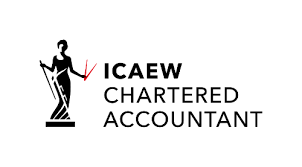- The Modern Accountant
- Posts
- The Modern Accountant Weekly Newsletter | Why KPMG Just Got Dropped For a 4-Person Firm🔍
The Modern Accountant Weekly Newsletter | Why KPMG Just Got Dropped For a 4-Person Firm🔍
Plus: From 4 hours to 20 minutes - payment automation in action⚡
Welcome to The Modern Accountant, a must-read for entrepreneurial accountants in growing firms. Each week, we share expert insights and practical tips to help you scale your practice, expand advisory services, and embrace new opportunities. Let’s redefine the future of accounting together.
Editors Pick 📣
What does best-in-class operational efficiency actually look like? For Bookkeeping Partner of the Year (2024), Accountability Edinburgh, it meant transforming payroll and supplier payments through smart integrations — cutting processing time from 4 hours to just 20 minutes.
From eliminating human error to building stronger client trust, this is a real-world example of how the right tools can elevate your CFO offering. Whether you’re already working with multiple clients or just starting out, this is a playbook worth watching.

Modulr
Sector Spotlight 🌟
TAX STRATEGIES
Exploring tax increases without touching tax rates forms a formidable challenge for the government, bound by pre-election promises. Rebecca Cave considers key strategies for raising revenue, notably tax simplification. One proposal involves a unified tax schedule combining income tax and NIC, and introducing a lower VAT registration threshold with a wealth tax supplanting CGT and IHT. Though these changes could streamline taxation and spur growth, the implementation hurdles, especially harmonising reliefs across income types, cannot be ignored.
Navigating such shifts demands considerable political boldness and resources. The largest obstacle remains employer NIC. Labelling it as employment tax could shift perceptions, but aligning tax periods and thresholds presents further complexities. Scotland's devolved tax powers and varied thresholds complicate matters north of the border. Cave's analysis suggests that starting anew with uniform tax rates might be practical, albeit requiring immense political capital and willpower to press forward.

Accounting Web
ECONOMIC CRIME
Addressing economic crimes like fraud, money laundering, and tax evasion is integral to fostering sustainable economic growth in the UK, according to a parliamentary report. With annual losses estimated at £350 billion, these illicit activities hamper market integrity, public trust, and the country’s global standing. Tackling these crimes can potentially recover funds equivalent to the UK's annual health and education budgets, presenting both an economic boon and a governance necessity.
The report highlights the pivotal role of accountants in enhancing transparency and compliance, calling for expanded responsibilities in ownership disclosure. Anti-money laundering obligations could widen to cover more professional groups, placing accountants at the front lines of reform. A proposed shift to a centralised anti-money laundering supervisory framework signals changes ahead, necessitating proactive adaptation from accountancy firms to retain industry credibility and support economic resilience.

ICAEW
TAX REFORM STRATEGY
The recent "How to Fix VAT" Conference hosted by ICAEW shone a light on potential reforms for the UK's VAT system. As tax revenues face increasing pressure, the need for efficient reform is evident. Experts such as Gemma Tetlow and John Whiting argue for substantial changes, emphasising the necessity of both strategic and piecemeal approaches to avoid political backlash. They highlight the importance of clearly defined objectives, public trust, and understanding the socio-economic impacts to foster acceptance of major VAT changes.
Moreover, maintaining a modern and relevant VAT system is crucial, especially as the UK seeks competitiveness against swift changes in the EU. Stephen Dale points out that reform cannot be delayed if the UK wishes to remain on par with developments across the Channel. While massive VAT reforms are indeed challenging, they may ultimately be more effective than smaller, incremental changes. These insights underline the complexity of VAT, shedding light on the critical balance between practical tax policy and political acceptability.
TAX ENFORCEMENT STRATEGY
HMRC is intensifying its tax investigations on high earners and asset-rich individuals, a strategy endorsed by the Labour government. With 400 specialist officers set to join HMRC's ranks, the aim is clear: ensure that those with incomes above £200,000 or assets exceeding £2 million contribute their fair share. Remarkably, this enhanced scrutiny has already doubled the tax revenue from wealthy individuals to over £1.5 billion in just one year. By 2030, these efforts are expected to contribute an additional £500 million annually to public services.
However, high earners and entrepreneurs might face increased compliance activities, prompting tax professionals to express concern about the ambitious targets set for tax collection. HMRC's state-of-the-art Connect system will play a critical role by using advanced analytics to cross-reference income and asset data. This reflects a broader governmental effort to tackle the tax gap, reinforcing public confidence in the system's fairness and aiming to secure £7.5 billion in annual public revenue by the decade's end.
AUDIT TRANSITION
Well, isn’t this a surprising turn? P&O Ferries, known for its expansive operations, has done the unexpected by appointing a small Oxfordshire firm, Just Audit & Assurance (JAA), over the heavyweights of the audit world. It’s particularly intriguing because their former auditor, KPMG, bowed out amidst filing challenges, leaving P&O with overdue accounts. Yet, rather than opting for another Big Four, P&O chose a four-person team led by Jonathan Russell, who is confident in his firm’s tried-and-true expertise backed by a network of professionals.
What’s most eye-catching here? The cost! JAA’s fee is a mere £265,000 compared to KPMG’s staggering £1.3 million last year. But with lower fees come concerns about independence—could JAA become too reliant on P&O as a major client? Russell dismisses this, pointing out a market trending towards smaller, more hands-on audit experiences. This shift echoes broader dissatisfaction with traditional audit delivery, especially under the scrutiny faced by the Big Four. Russell maintains that audit quality should transcend the size of the firm, as it’s not all about the name but the work and trust behind it.
